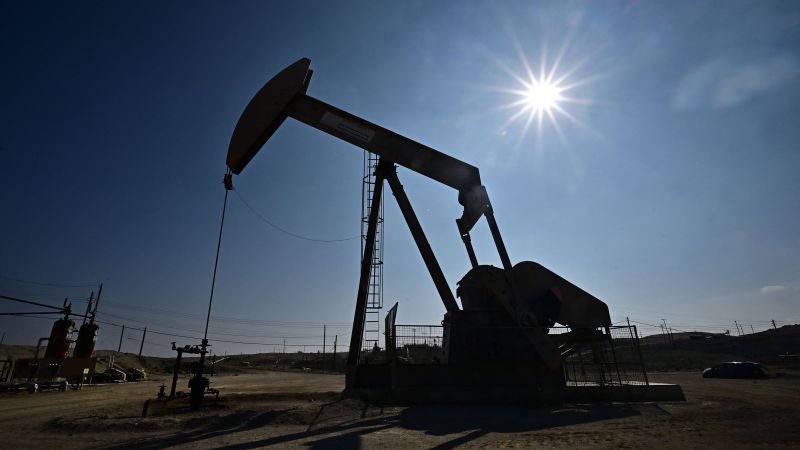Oil prices initially surged after reported explosions near Isfahan, Iran, but later dropped as officials downplayed the situation. Despite this, tensions in the Middle East remained high as Israel reportedly conducted a military strike inside Iran. The Israeli military did not confirm the reports, and Iran has not identified the source of the attack. Israeli Prime Minister Benjamin Netanyahu had previously stated that Israel would make its own decisions in response to Iran’s airstrikes last weekend.
The risk to oil supply increased due to the overnight attack on Iran and the threat of retaliation. Neil Shearing, chief economist at Capital Economics, noted that some of this risk had already been factored into the market response. Oil prices have risen by about 15% this year, driven by fears of a wider conflict in the Middle East, supply constraints by OPEC, and expectations of increased Chinese demand. The biggest concern for the oil market is the potential disruption of oil shipping through the critical Strait of Hormuz.
Although Iran exports most of its oil to China due to international sanctions, a reduction in Iranian oil exports could have a significant impact on the global market as China would have to compete with other countries for supplies. There are also risks to oil supply in other regions, such as the United States reinstating sanctions on Venezuela’s oil industry and Mexico reducing oil exports due to domestic demand. The reaction in other markets, such as gold prices and stock markets in Asia, initially reflected concerns about the Middle East conflict but later stabilized as the situation appeared to be limited in scope.
The impact of the latest escalation in the Middle East conflict on European and Israeli markets was relatively muted. European stock markets were trading slightly lower, and Israel’s benchmark Tel Aviv 125 Index was flat. S&P Global Ratings downgraded Israel’s sovereign credit rating due to increased geopolitical risks from its conflicts with Hamas and Iran-backed Hezbollah. S&P analysts predicted that these conflicts would continue throughout 2024, although they expected a wider regional conflict to be avoided. The ongoing tensions between Israel, Hamas, and Hezbollah have raised concerns about further escalation in the region.
Overall, the situation in the Middle East remains tense, with the potential for further conflict between Iran, Israel, and other regional players. The oil market is closely monitoring developments as disruptions to oil supply could have a significant impact on global energy markets. The stability of financial markets in the region is also being closely watched as investors assess the risks of geopolitical tensions. Despite the initial market reactions to the recent events, the situation appears to have calmed for now, but the underlying risks remain.


